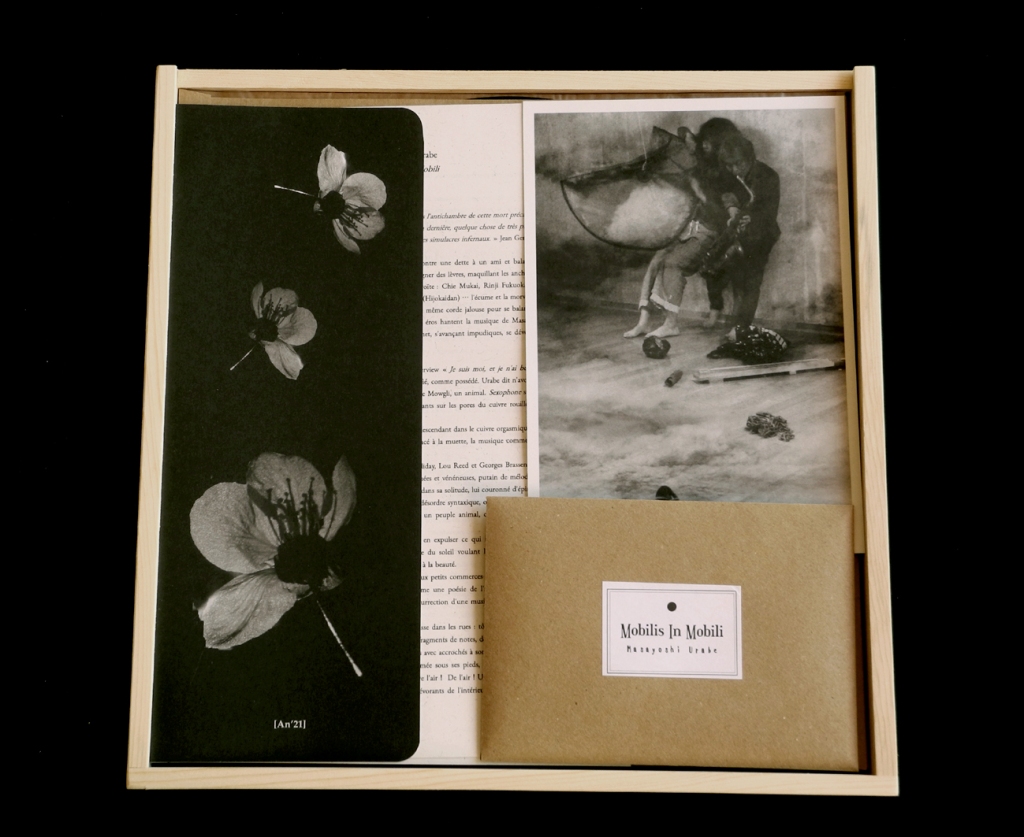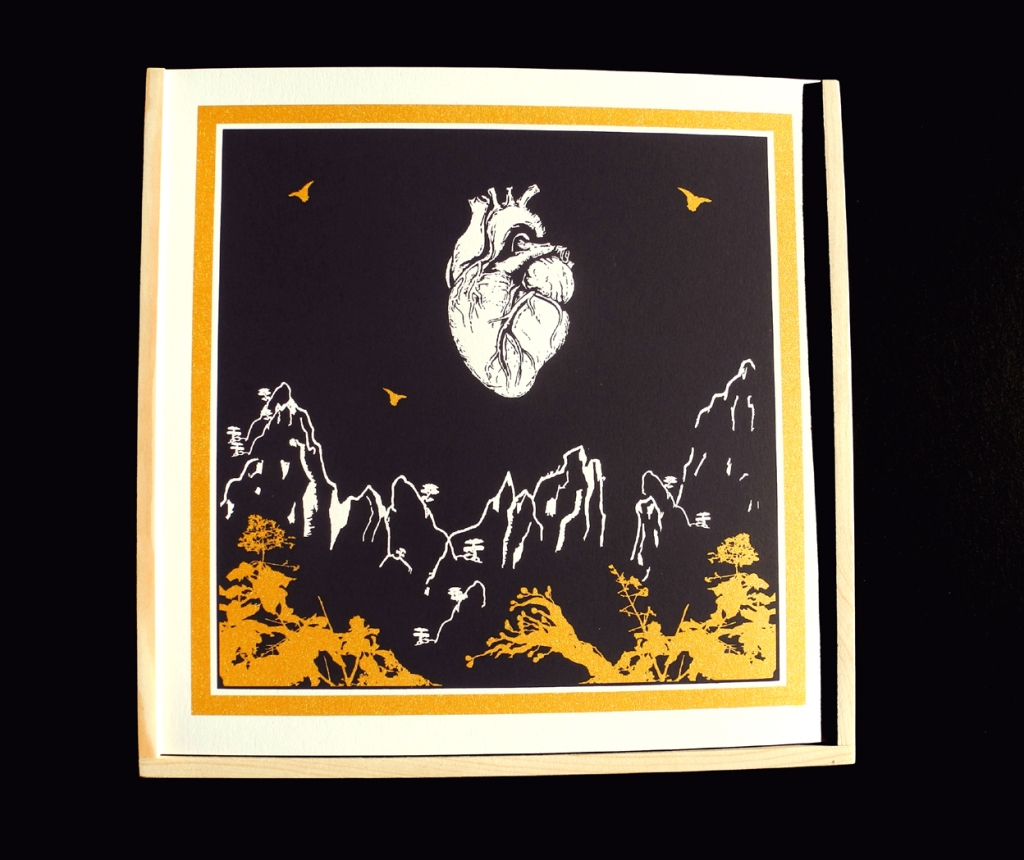Masayoshi Urabe 3 LP box “Mobili In Mobili”
Edition of 285, silk-screened wooden slipcase with 3 silkscreened panels (black & gold) + inserts and a 6 postcards set
Handmade slipcases and printing job by Alan Sherry
Liner notes by Michel Henritzi
An’archives présente trois documents, trois vinyles scarifiés par les illuminations de Masayoshi Urabe, six performances gravées là comme des épitaphes sur la pierre qui recouvre le vivant. Enregistrements faits dans de petites salles banlieusardes au Japon où il a pour habitude de jouer devant un maigre public, le Bitches Brew à Yokohama, le Groove à Okinawa et Gari Gari à Tokyo.
Urabe a croisé dans les couloirs du label culte PSF : Kan Mikami, Chie Mukaï, Rinji Fukuoka, Hiroshi Hasegawa, avec qui il a joué, parfois enregistré des albums d’une insondable beauté. Mais c’est en solo qu’il est le plus troublant, lumineux et sombre, violent et poignant.
Pas d’autres frères que Kaoru Abe et Albert Ayler, un même tragique, une même corde jalouse pour se balancer dans le son, renverser le ciel sous nos pieds. Urabe s’accouple à son alto, le violente, snuff jazz appelant les anges déchus à venir nous hanter. La mort, comme son éros, hante l’œuvre de Masayoshi Urabe, se dévoile à travers ses sons cuivrés. Il suit le son, l’aspire et le crache, sac d’air retourné jusqu’à l’épuisement, violent, jouant ou dansant, voulant que les premiers rangs cèdent à son érotisme trouble. Urabe est un magnifique mélodiste, même s’il finit par tout saccager, ne rien laisser d’autre qu’un corps musical mutilé. Notes étranglées, aucune mélodie, juste du souffle, de l’air craché, un chant d’amour.
Michel Henritzi
These are recordings made in small suburban venues in Japan where Urabe would play in front of a meagre audience: the Bitches Brew in Yokohama, the Groove in Okinawa and the Gari Gari in Tokyo.
In the corridors of cult label P.S.F. Records, Urabe came across the likes of Kan Mikami, Chie Mukai, Rinji Fukuoka, Hiroshi Hasegawa, with whom he played, and sometimes recorded albums of unfathomable beauty. But he is most disturbing, luminous and dark, violent and poignant, during his solo sets. Hideo Ikeezumi (the cultural ambassador behind P.S.F.) supported him more than others and tried to offer him all the space he could hope for.
His only kindred spirits are Kaoru Abe and Albert Ayler, with whom he shares a sense of tragedy, the same jealous string to swing into the sound, to turn the heavens over to our feet. Urabe mates with his alto sax, assaults it, snuff jazz calling fallen angels to come and haunt us.
Death, like Eros, haunts Masayoshi Urabe’s body of work, and unravels through copper sounds. He follows the sound, inhales it, spits it like an air bag turned inside out until exhaustion, violent, playing and dancing, willing the front rows to give in to his murky eroticism.
Urabe is a magnificent musician, even though he ends up trashing everything, leaving only a mutilated musical body behind. Strangled notes, no melody, just breath, spat air, un chant d’amour.
SOLD OUT


